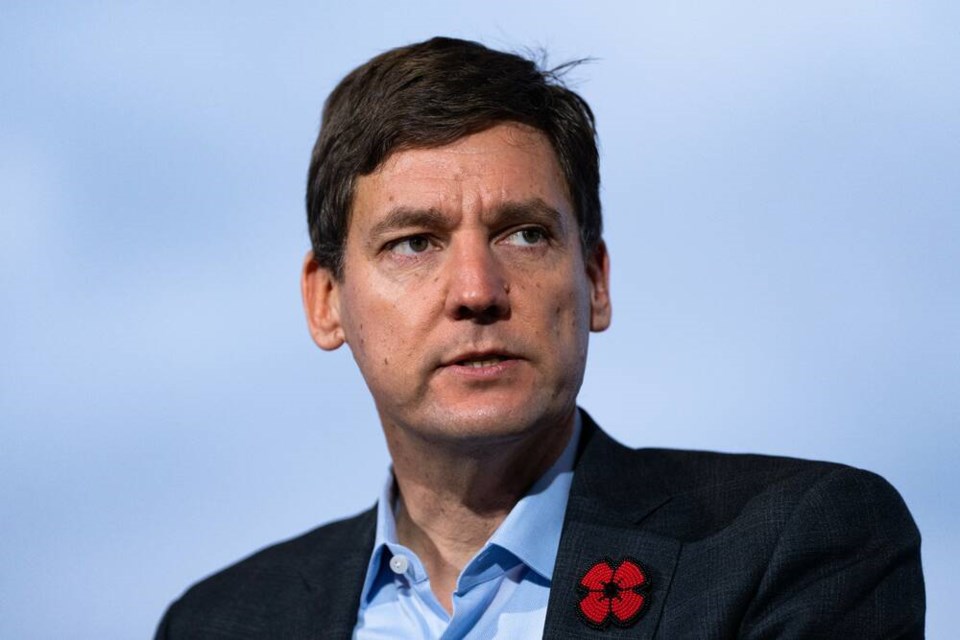Some B.C. mayors are frustrated by Premier David Eby’s support for legislation that would stop Ottawa from giving housing cash directly to municipalities.
The mayors of Burnaby and Surrey say they desperately need more funding for housing and infrastructure to support growing populations and the province shouldn’t meddle if Ottawa is willing to provide that money.
“I think that the federal government absolutely has every authority and right to give directly to cities,” said Surrey Mayor Brenda Locke.
She said local governments know their cities best, including the impact of growth on their city.
“Our relationship with the federal government must be fluid,” Locke said. “I don’t know why the province sees the need to interfere in that.”
Said Burnaby Mayor Mike Hurley: “I’m not sure the province can tell the feds what to do in the same way that cities can’t tell the province what to do.”
Hurley said there have been some good examples of projects that got off the ground quicker when the federal government worked directly with municipalities.
“From our perspective, it always worked much more efficiently when we didn’t have to deal with all the levels of government,” Hurley said. “And there was less political interference.”
The prospect was first raised on Monday by Canadian premiers who met in Halifax for the Council of the Federation conference. The premiers, including Eby, signed a joint communiqué that calls for federal funding “that flows exclusively through provinces and territories” in order to address housing needs and support long-term capital planning.
The premiers opposed “application-based” funding like the federal government’s $4 billion housing accelerator fund, which the premiers argue does an end run around the provinces and territories.
Eby, speaking to reporters Tuesday during a joint news conference with Newfoundland and Labrador Premier Andrew Furey, said it’s a “no-brainer” that federal housing funding should line up with the first 10 municipalities required to meet provincially mandated housing targets.
Eby said it’s an “irritant” that Ottawa makes housing funding announcements without co-ordinating with the provinces.
He acknowledged B.C. needs major federal investments in infrastructure to keep up with population growth but said “we just cannot have a situation where the federal government is entering into direct agreements with cities around essential infrastructure without any provincial involvement because we’re on the hook for a portion of that funding.”
Eby said he doesn’t necessarily believe B.C. needs to pass a law, “we just need the federal government to engage at the table.”
Federal Housing Minister Sean Fraser dismissed the premiers’ objections, telling reporters in Ottawa on Tuesday: “If we are living in a crisis situation, we cannot afford to take a solution off the table.”
Anita Anand, president of the federal Treasury Board, said the premiers’ communique “is quite contrary to what we’re hearing from municipalities and what premiers themselves have said.”
Langley Township Mayor Eric Woodward said Eby’s statement that only municipalities tapped to meet provincial housing targets should be prioritized for federal funding is “puzzling.”
“So, we should not build housing, get put on a list (by the province) and then we get federal funding?” Woodward asked. “Why not help municipalities like mine with funding that are building housing without having to be told how and where to do it from Victoria?”
So far, Kelowna is the only B.C. municipality to receive the federal cash, an agreement worth $31.5 million aimed at fast-tracking 950 homes over the next three years.
Burnaby and Surrey are also expecting housing cash from Ottawa but the funding announcement in September was abruptly cancelled by Fraser after he found out about the proposal by Metro Vancouver’s board to triple fees for new development.
Fraser said Metro municipalities that were in line for housing accelerator funding will still receive it but with some “adjustments.”
“Before finalizing the funding decisions, I will be re-examining the proposed initiatives in each city’s application and will make necessary adjustments where the initiatives conflict with the position” taken by the Metro board.
When asked if those adjustments could mean a smaller pot of cash, Fraser’s office didn’t elaborate.
— With files from The Canadian Press



